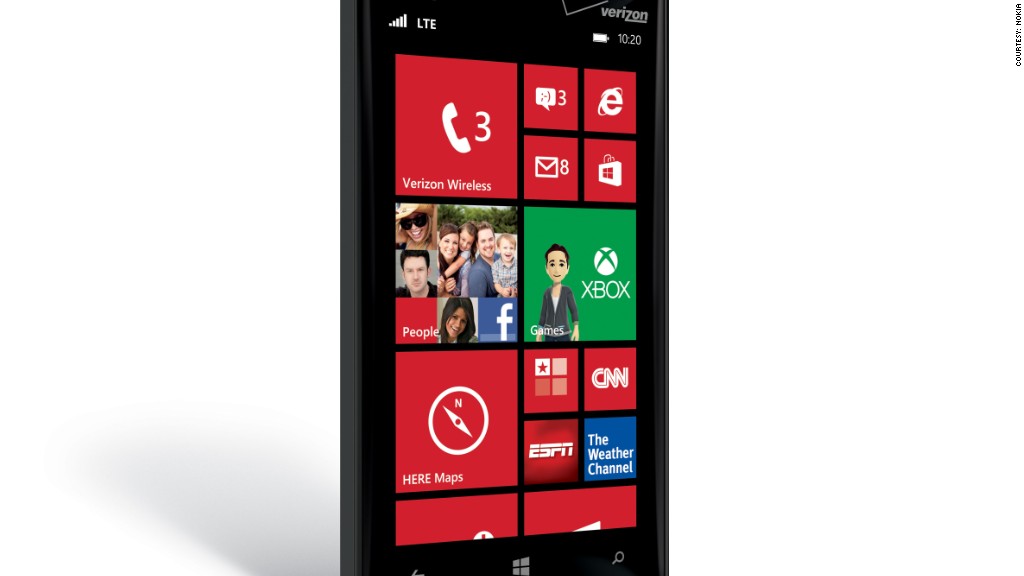
On paper, Nokia's latest Windows Phone 8 device, the Lumia 928, is the company's new best smartphone. It could even be the best overall Windows smartphone when it hits Verizon later this month.
But will the Lumia 928, which Nokia (NOK) unveiled Friday, really be the struggling smartphone maker's top device for the next six to 12 months?
There's certainly nothing appalling about the device: It has a clean design that's thinner and lighter than its paperweight-like precedessor, the Lumia 920. It has a best-in-class 8.7 megapixel camera with improved flash, a dual-core Snapdragon processor, 1 gigabyte of RAM, improved battery life and a 4.5-inch, 1280x768 pixel OLED display.
Those are all fine specifications, and this is definitely the type of device many imagined would eventually emerge when Nokia and Microsoft (MSFT) first partnered up
But the Lumia 928 already feels six months behind.
Related story: 5 things we want to see from the new Android
Camera aside, much of that that is out of Nokia's control. Until Microsoft releases an update to Windows Phone 8 later this year, Nokia's hands are tied: It has equipped the 928 with the best processor and display the operating system will allow. To be fair, Nokia had room to add more RAM to the 928, but it opted to go with the bare minimum Microsoft will allow.
Another factor knocking the Lumia 928 down a peg: it's only launching on one carrier -- Verizon -- at a bargain price of $100. Top-of-the-line smartphones, such as the Apple (AAPL) iPhone, Samsung Galaxy S4 and BlackBerry (BBRY) Z10 typically launch on all carriers.
These may be relatively minor details, but they seem to be painting a bigger picture: Tthe Lumia 928 is an interim "flagship" phone designed to maintain interest in the brand until Nokia can launch a device with more firepower. It's a preview of things to come later this year.
That's fine for now. But if the Lumia 928 is the best of we end up seeing from Nokia until 2014, the company may have cause for concern.

